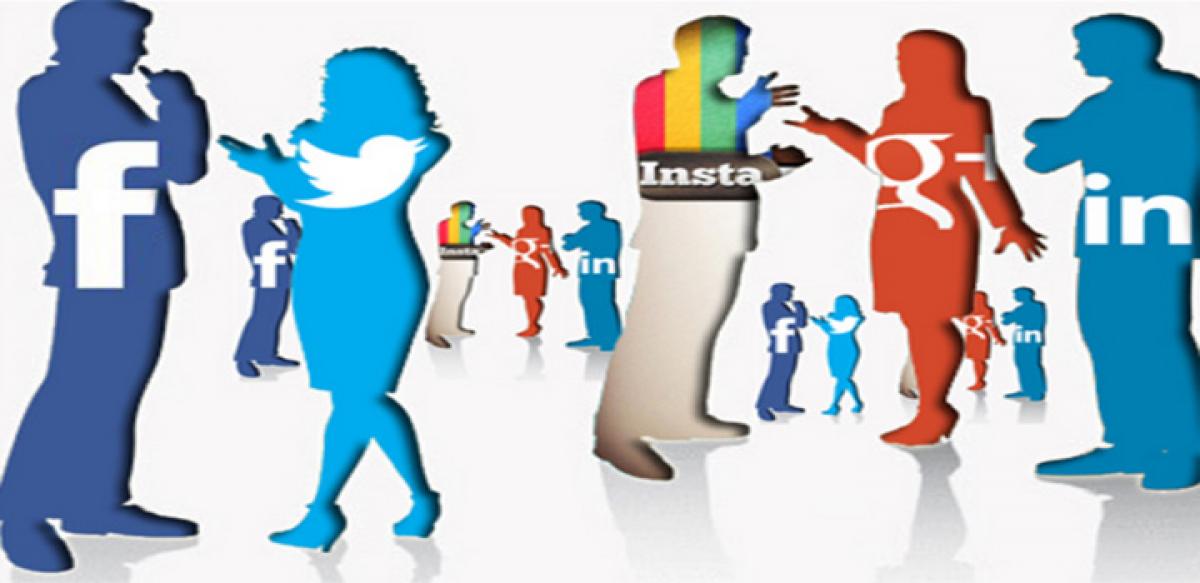Live
- Modi strengthens global ties at Rio de Janeiro
- 55% share price fall costs Ola Electric investors Rs. 38K cr
- Banks report synchronised growth in credit, deposits
- PM Awas 2.0 launched
- Target Kohli’s body, his front pads to put him on back-foot: Healy’s advice to Oz quicks
- LIC accused of thrusting Hindi
- Will make Warangal a la Hyderabad
- Will showcase Indiramma Rajyam: CM
- HC orders attachment of Himachal Bhawan
- Plane from Vedic era, not Wright Brothers: UP Guv
Just In

Using social media platforms like Twitter and Facebook can be beneficial for helping people to exchange knowledge with rare medical diseases and build communities, says a new study. According to researchers, people often seek medical knowledge from social media platforms rather than traditional medical sources to find information on and discuss health issues
London: Using social media platforms like Twitter and Facebook can be beneficial for helping people to exchange knowledge with rare medical diseases and build communities, says a new study. According to researchers, people often seek medical knowledge from social media platforms rather than traditional medical sources to find information on and discuss health issues -- particularly where patient experiences and medical advice are both equally valued.
"This project shows the potential of online communication tools for isolated patient communities and the extent to which patients' experiential knowledge is becoming a point of reference for other patients, together with - or sometimes in isolation from - traditional medical sources,” said Stefania Vicari from University of Leicester's department of media and communication in the Britain.
"These forms of organisationally enabled connective action can help to build personal narratives that strengthen patient communities, the bottom-up production of health knowledge relevant to a wider public and the development of an informational and eventually cultural context that eases patients' political action,” added Vicari in the paper published in the journal Information, Communication and Society.
The study examined online interactions in rare disease patient organisations in order to interpret how and to what extent patient organisations exploit online networking structures to provide alternative platforms for people to find information on and discuss health issues.
The findings suggests that digital media eases one-way, two-way and crowd-sourced process of health knowledge sharing -- provides personalised routes to health-related public engagement, creates new ways to access health information - particularly where patient experiences and medical advice are both equally valued.
"Not only is patients' knowledge valuable for peer support within patient communities, it has the potential to add to traditional medical knowledge, especially in cases where this is limited - such as in the case of rare diseases," Vicari stated.

© 2024 Hyderabad Media House Limited/The Hans India. All rights reserved. Powered by hocalwire.com







